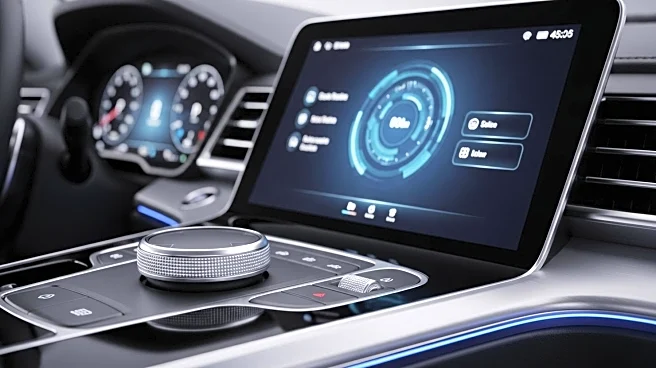What's Happening?
BMW has decided to retain physical volume knobs in its vehicles, despite the trend towards digital interfaces. Stephan Durach, BMW's senior vice president of UI/UX development, stated that data from over 10 million vehicles showed that drivers frequently use the volume knob, even with steering wheel controls available. This decision comes as some automakers face backlash for removing physical controls, with lawsuits filed against companies like Volkswagen for overly sensitive touch controls. BMW's research indicates that certain physical controls, such as window and mirror buttons, remain essential for driver satisfaction and safety.
Why It's Important?
The decision by BMW highlights a significant consumer preference for tactile controls in vehicles, which can impact driver safety and satisfaction. As automakers increasingly integrate digital interfaces, the balance between innovation and usability becomes crucial. The retention of physical controls may influence other manufacturers to reconsider their design strategies, potentially affecting industry trends. This move also reflects a broader consumer demand for intuitive and reliable vehicle interfaces, which could shape future automotive design and technology integration.
What's Next?
BMW's commitment to maintaining physical controls may prompt other automakers to reevaluate their interface designs, potentially leading to a resurgence of tactile controls in new models. The industry may see increased research into consumer preferences and the development of hybrid interfaces that combine digital and physical elements. Automakers might also face regulatory scrutiny regarding the safety implications of digital-only interfaces, influencing future design standards.
Beyond the Headlines
The debate over physical versus digital controls touches on broader themes of technology adoption and user experience. It raises questions about the role of consumer feedback in design decisions and the potential for technology to enhance or hinder everyday tasks. The automotive industry's response to these challenges could set precedents for other sectors facing similar digital transitions.









